Embark on a fascinating exploration of the Chihuahua, a breed that combines a charismatic personality with a petite stature – making it a unique addition to the canine world. Chihuahua are known for their ‘apple head’ shape and lively nature. The American Kennel Club (AKC) recognized them in 1904 and ranked them 34th out of 201 dog breeds. In 2022, The Kennel Club UK registered 1,117 Long Coat & 1,337 Smooth Coat Chihuahuas, showing how popular they are.
Keep reading to know what makes Chihuahuas special and how to look after these adorable dogs.
The information provided herein is for informational purposes only. Please refer to our disclaimer for more details..
- Quick Facts
- Chihuahua Breed Overview
- Chihuahua History
- Chihuahua Appearance
- Chihuahua Size, Weight, and Lifespan
- Chihuahua Temperament & Personality
- Chihuahua Children and Other Pets
- Chihuahua Grooming & Care
- Chihuahua Diet and Nutrition
- Chihuahua Exercise
- Chihuahua Training
- Chihuahua Health
- Ideal Owner for Chihuahua
- How To Get a Chihuahua
- Conclusion
Quick Facts
Image credits: Evie Fjord
| Size | Tiny |
| Weight | 4 to 6 pounds (standard), up to 12 pounds (oversized) |
| Height | 6 to 9 inches |
| Lifespan | 14 to 16 years |
| Types | There are two kinds: Smooth Coat (short & smooth fur) and Long Coat (longer, wavier fur). |
| Families | They’re good for many homes – especially with older, calmer kids. Not the best for families with very young children because they’re so small. |
| Appearance | They have a unique ‘apple head’ or ‘deer head’ shape, big ears that stand up, and round eyes. And, they come in over 30 colors and patterns, like black, white, fawn, and chocolate. |
| Temperament | Alert, protective, loyal, energetic, and playful. |
| Other Pets | Usually okay with other pets if they meet them early, but they might try to be the boss. |
| Training | They’re smart and learn fast. Training with rewards works well. |
| Exercise Required | Moderate – regular 20-30 minutes of exercise like walks and playful activities. |
| Owner Requirement | Best for adults or families with older kids. And they need someone who can spend a lot of time with them. |
| Grooming | Smooth coats need little grooming; long coats need regular brushing. Both types need care for their ears, eyes, nails & teeth. |
| Health | Prone to patellar luxation, hypoglycemia, heart disorders, collapsed trachea, seizures, hydrocephalus, dental issues & open fontanel. |
| Nutrition | Food specially made for small breeds is good for them. It’s important to watch their weight. |
| Accommodation | They can live in different places, like apartments or houses. |
| Cost | Buying from breeders can cost $800 to $2,000 or more. While adoption fees are between $50 and $250. |
| Kennel Club Group | Toy (AKC classification) |
Chihuahua Breed Overview
The Chihuahua, a tiny dog but spirited toy breed, is renowned for its large personality encapsulated in the world’s smallest canine form. They’re really loyal and loving to their owners – making them great pets for different types of homes. They can live happily anywhere, from a first-time pet owner’s place to a busy family home. And despite their size, Chihuahuas are active and playful. Because of their size, you have to be careful around them, especially with kids, to avoid hurting them. They come in two types:
- The easy-care smooth-haired
- And the fluffy long-haired that needs regular brushing.
They can be black, brown, white, tan & other color mixes. Chihuahuas are intelligent, quick learners, excelling in agility and obedience with proper, positive reinforcement training. They’re curious and brave, often getting very close to one person. And you have to watch them carefully because they’re so small, especially when they’re in new places or around bigger dogs.
Chihuahua History
Image credits: ALINA MATVEYCHEVA
The Chihuahua’s history is as intriguing as its personality. No one knows exactly where they came from, but there are two main ideas.
- One idea is that they come from the Techichi, a dog loved in the ancient Toltec civilization in Central and South America. Old Toltec carvings from the 9th century show a dog that looks like a Chihuahua – with big ears & a round head. And these dogs were important in Toltec & later Aztec societies because people thought they had special powers.
- Another theory is that Chihuahuas started from small, hairless Chinese dogs mixed with local dogs in Mexico, brought by Spanish traders.
What’s undisputed is that the modern Chihuahua was first recognized in the 1850s in the Mexican state of Chihuahua, which lent its name to the breed. The AKC recognized the breed in 1904, with a dog named Midget being the first registered Chihuahua.
Their popularity grew greatly in the 1930s and 1940s, thanks to dance star Xavier Cugat. And they stayed popular into the late 20th & early 21st centuries, helped by their appearances in movies and with famous people.
Chihuahua Appearance
Image credits: thanh hien
The Chihuahua’s distinctive appearance is characterized by a variety of features that make this breed both unique and diverse:
- Head Shape: Chihuahuas have two kinds of head shapes. The ‘apple head’ is rounder, while the ‘deer head’ has a more narrow look with a longer nose.
- Ears and Eyes: They have big, stand-up ears that open wider when relaxed and droop when they’re scared or feeling shy. They usually have round eyes, which can be either dark or light.
- Nose: The color of a Chihuahua’s nose often matches their coat. They usually have black noses. But light-colored Chihuahuas might have pink or tan noses.
- Coat Types:
- Smooth Coat: This type is short, sleek & glossy, fitting snugly to the body with a thicker ruff around the neck.
- Long Coat: This kind has flat or slightly wavy fur that’s soft. They have an undercoat, furry ears, furry back legs, and a big ruff around their neck.
- Coat Colors and Patterns: There are over 30 colors and patterns of Chihuahuas. These include single colors like black, white, fawn, and chocolate & complex patterns like tricolor, brindle, spotted, and merle. And they also have different kinds of markings like:
- Solid
- Marked
- Brindled
- Sabled
- Or splashed patterns.
- Tail: Their tail is different depending on the coat type. Smooth-coated Chihuahua have a furry tail. And the long hair coated Chihuahua has a tail with feathery fur.
Chihuahua Size, Weight, and Lifespan
Image credits: David Vives
The Chihuahua packs a lot of personality into its small frame despite their small size. Here’s a quick overview of its size, weight & lifespan:
- Weight: Most Chihuahuas weigh between 4 to 6 pounds – both males and females. Some are smaller, but this might mean health problems. And the bigger ones can weigh over 12 pounds. These are good for families with kids.
- Height: They are about 6 to 9 inches tall, both males & females.
- Lifespan: Chihuahuas usually live for 14 to 16 years, offering a long companionship span.
Chihuahua Temperament & Personality
The Chihuahua might be tiny, but it’s full of charm, confidence, and a little bit of feisty spirit. Let’s look at their personality:
- Alert & Protective: They’re naturally watchful and can be wary of strangers. This makes them good little watchdogs. They’re brave, even though they’re small.
- Loyal Companions: They’re very loyal and often form a close bond with one person. However, they can be friendly and sociable with new people once properly introduced.
- Energy and Playfulness: Chihuahuas have lots of energy. They’re playful and fun, showing a lively and sometimes ‘saucy’ expression. And they’re curious but always loving with their family.
- Need for Attention: They love affection and closeness to their owners – enjoying cuddles and lap time.
- Independence Training: It’s important to let them walk by themselves and do normal dog things, even though they’re easy to carry around.
- Managing Separation Anxiety: Because they’re often carried & held, they might get anxious when alone. So, giving them a safe place and toys to play with at home can help with this.
Chihuahua Children and Other Pets
Chihuahuas can be great friends for kids and live well with other pets if they meet the right way. But because they’re so small, you have to be careful:
- Children Interaction: Many Chihuahuas like being around kids, but you must be extra careful – especially with little children. And they can get hurt easily, so it’s best if kids sit on the floor when they play with them. Breeders usually say Chihuahuas are better for families with older, calm kids who know how to be gentle with small dogs.
- Supervised Play: Always watch when Chihuahuas and kids are together. And teach kids how to approach & handle the dog the right way. This means not bothering the dog when it’s eating or sleeping.
- Other Pets: Chihuahuas usually get along with other pets in the house, like cats, especially if they meet when the Chihuahua is still young. Despite their size, they might try to assert dominance over larger dog breeds. And it can be both amusing and a potential source of conflict.
Chihuahua Grooming & Care
Image credits: Tamara Bellis
Taking care of a Chihuahua isn’t too hard, and it helps keep these cute dogs happy and healthy:
- Coat Care:
- Smooth-Coated: They don’t need much grooming. Brushing them once a week with a rubber mitt or short brush is enough. They shed a bit, especially in spring and fall.
- Long-Coated: These need more grooming because of their longer fur. Brush them two to three times a week with a pin brush, paying attention to the undercoat.
- Bathing: Both types don’t need many baths – once every month or two is good. And always use a shampoo made for dogs to keep their skin and coat healthy.
- Ear Care: It’s important to clean the inside of the ears gently with a cotton ball & a cleaner recommended by your vet. But don’t go too deep into the ear. Use baby or coconut oil if their ears are dry.
- Eye Care: Chihuahuas, especially the long-haired ones, can get tear stains. Wipe their eyes regularly to clean them. And use special products to remove stains if needed.
- Nail Care: Their nails grow fast and should be kept short. Cut them often, and it’s best to start doing this when they’re young so they get used to it. Also, check their pads for foreign objects or injuries during nail care.
- Dental Care: Teeth health is really important for Chihuahuas. So brush their teeth two to three times a week, or even every day, to stop tartar and bacteria from building up.
Chihuahua Diet and Nutrition
As chihuahuas are small dogs, so they need a special diet to stay healthy:
- Amount and Frequency: Grown-up Chihuahuas usually eat about 1/4 to 1/2 cups of dry dog food daily. And this amount can change depending on their:
- Size
- Age
- How active they are
- And their metabolism.
Feeding them twice a day, based on the recommended portion of the food package, is best.
- Puppy Feeding: Chihuahua puppies must eat more often – about three or four times daily. This stops low blood sugar. And their diet should be rich in fats, proteins & complex carbs.
- Food Type: Dry food is a good choice because it has the right nutrients and helps keep their teeth healthy. Foods made for small breeds are easier for them to eat.
- Quality of Food: Choose high-quality dog food. Better food means they eat less and there’s less chance of feeding them too much.
- Risk of Obesity: Opt for high-quality pet food, as better nutrition means more efficient feeding and less risk of overfeeding.
- Treats and Supplements: Only give treats sometimes. They might need supplements like omega fatty acids for their health and dental supplements, as your vet suggests.
Chihuahua Exercise
Image credits: Myriams-Fotos
Even though Chihuahuas are tiny, they have a lot of energy. Like all dogs, these dogs need about 20-30 minutes of exercise each day, and they love to:
- Play
- Chase squirrels
- Fetch toys
- And go for daily walks
But it’s important to watch how much they do so they don’t get too tired, especially when it’s hot.
For puppies, short times of playing are good until they’re about three months old. Then, you can slowly increase their exercise but not too much. When they’re around four months old, – start taking them for walks. And use a harness to keep their back and neck safe. But don’t make them run long distances.
Remember: Chihuahuas are indoor pets; their small size makes them vulnerable to predators and larger animals outdoors.
Chihuahua Training
Training a Chihuahua is about helping them get along with others and learning good manners. They’re smart but can be a bit cheeky, so start your dog training early and keeping it up is important:
- Socialization: Letting them meet different people and dogs early stops them from being scared or aggressive. Socialization classes are an excellent way to achieve this.
- Housetraining: Chihuahuas can learn house manners just like any dog. And taking them outside often, especially after eating or sleeping, helps with this. Crate training can also work, teaching them bladder control – but don’t use it too much.
- Positive Reinforcement: They do well with training that uses rewards like treats, praise & play. And this helps them learn commands like ‘sit’ and ‘stay’.
- Barking Tendencies: Chihuahuas naturally bark a lot because they’re always alert. You can’t stop them from barking completely. But you can also train them to bark less through techniques like:
- Counter-conditioning
- And desensitization.
Chihuahua Health
Image credits: Ellie Burgin
Chihuahuas are usually healthy, but they can have some health problems. Knowing about these early helps keep them well:
- Patellar Luxation: Often present from birth, this condition involves the misalignment of the femur, patella (knee cap), and tibia (calf) – leading to a peculiar skip or hop in the dog’s gait. And it can range from mild (grade I) to severe (grade IV), where the leg looks bent. Severe cases might need surgery to stop arthritis.
- Hypoglycemia: In small puppies like Chihuahuas, low blood sugar can be dangerous. Signs include:
- Being very tired
- Shaking, seizures
- Or even coma
Quick help, like putting honey under their tongue and seeing a vet, is important.
- Heart Disorders: They can have heart problems like murmurs or valve diseases, which might lead to heart failure. They may need medicine, changes in food, and less exercise.
- Collapsed Trachea: This is when the rings in the windpipe get weak, making it hard to breathe. Symptoms include a cough that sounds like honking. And they might need surgery for bad cases.
- Seizures: Chihuahuas can have epilepsy, showing as seizures. These aren’t painful, but they need long-term medicine.
- Hydrocephalus: This involves the accumulation of cerebrospinal fluid in the brain, sometimes making the head bigger. There’s no cure, but some treatments like steroids or surgical shunts can help in mild cases.
- Dental Issues: They often have teeth & gum problems because their mouths are small. This can lead to serious health issues. So regular teeth cleaning is very important.
- Open Fontanel: Some Chihuahuas have a soft spot on their head that doesn’t close fully. Be careful not to hurt this area.
- Respiratory System Disorders: They might have a collapsed trachea, blocking their airway. If they have a cough that sounds weird, they might need treatment, sometimes even surgery.
Ideal Owner for Chihuahua
Image credits: Quang Nguyen Vinh
Thinking about getting a Chihuahua? It’s important to look at your home and how you live. These little dogs with medium energy do well in different places – like:
- Busy city apartments
- Or quiet houses in the suburbs.
These breeds are usually better for adults or families with older kids because they’re small & can be strong-willed. Young children might accidentally harm them. And larger pets could unintentionally injure these petite companions. The best owners are those who can give them a safe, loving, and caring home.
How To Get a Chihuahua
If you want to bring a Chihuahua puppy home, you have two main choices: buy from a good breeder or adopt an adult dog from a rescue group.
- Reliable breeders, who can be found through resources like the American Kennel Club – typically offer Chihuahuas at prices ranging from $800 to $2,000 or higher. And, this price is based on the dog’s family background and the breeder’s reputation.
- On the other hand, Chihuahua-specific rescue groups offer adoption options, such as:
Adoption fees change based on things like the dog’s age, health, and the care they got before being adopted. Usually costing between $50 and $250.
Both ways can help you find a healthy, loving Chihuahua friend.
Conclusion
To sum it up, the Chihuahua is a lively, loyal little dog with a big personality. They have their own special traits, from their fun nature to their health and care needs. Whether you like their protective side, playful energy, or how well they fit into different homes – owning a Chihuahua means understanding & caring for these unique qualities. And by taking on the role of a Chihuahua owner, you’re not just getting a pet but a loving, lifelong buddy.
Enjoy your time with a Chihuahua; it’s sure to be a rewarding experience and full of joy!
677views
Share on FacebookExplore more of these tags
Chihuahuas have spirited personalities that bring charm and joy to any household. You can find puppies at mydogbreeds.com.
Chihuahuas have spirited personalities that bring charm and joy to any household. You can find puppies at mydogbreeds.com.

 Dark Mode
Dark Mode 

 No fees, cancel anytime
No fees, cancel anytime 






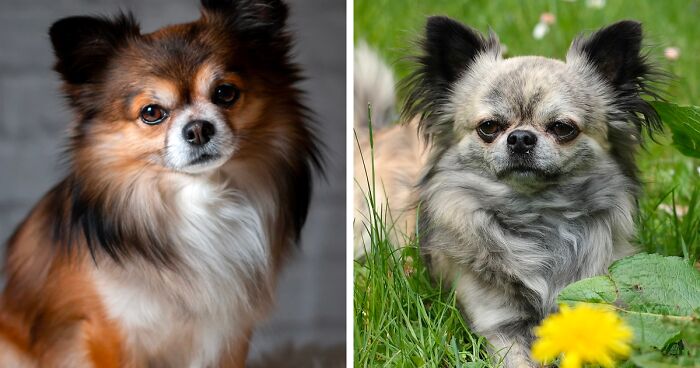
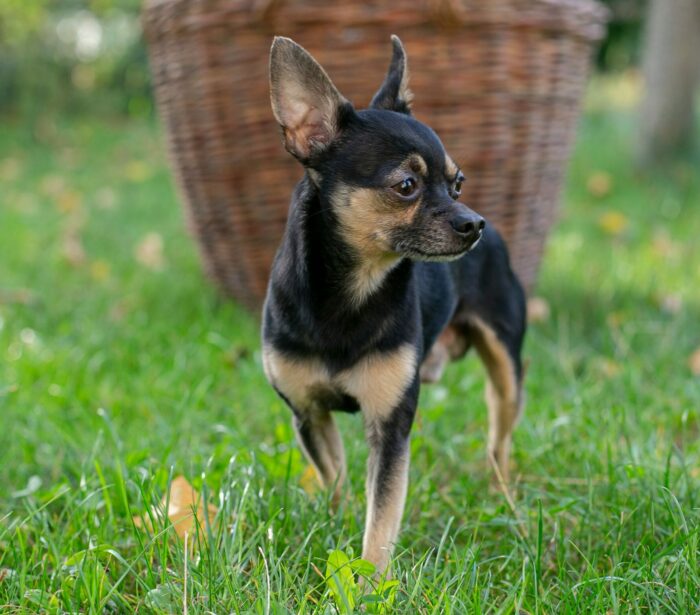
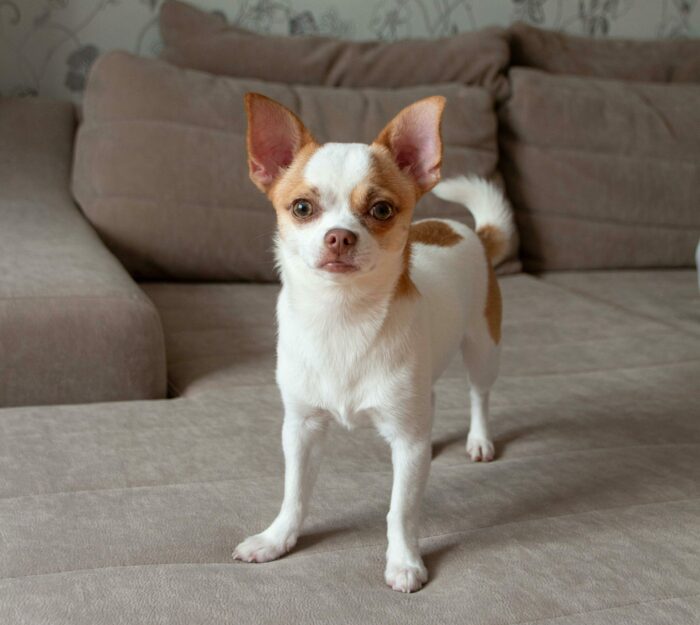
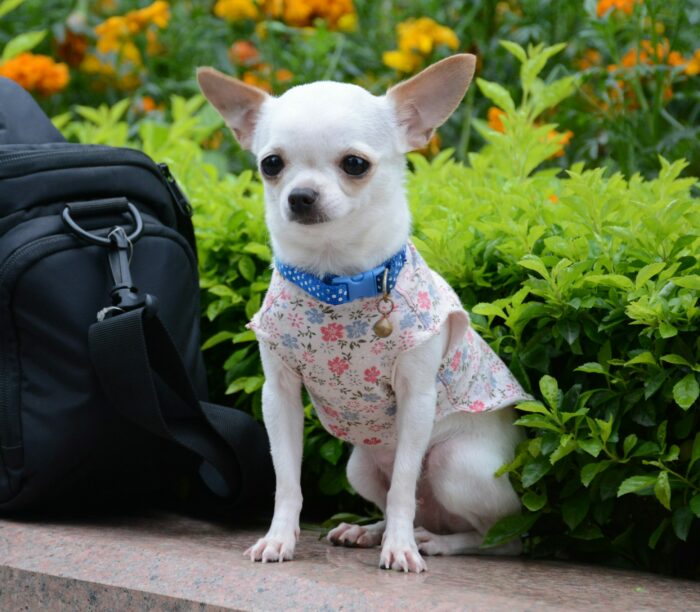
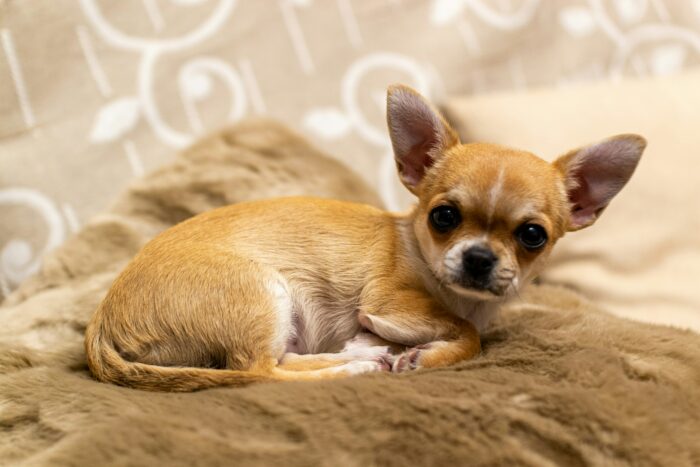

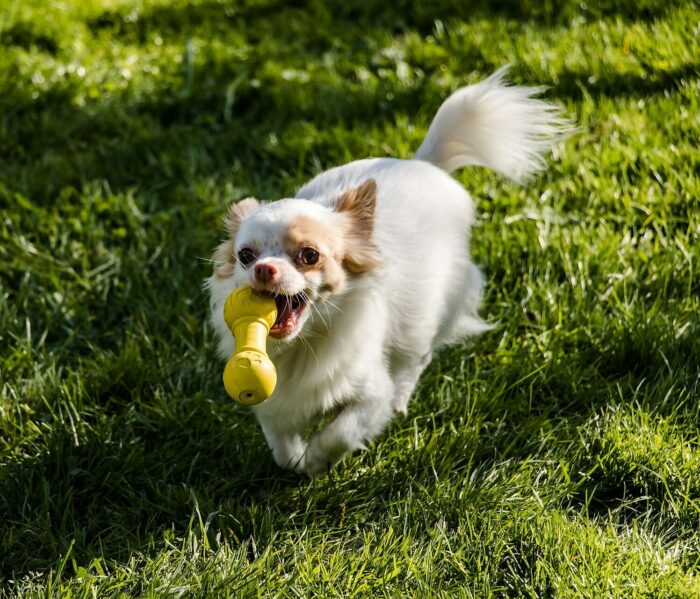
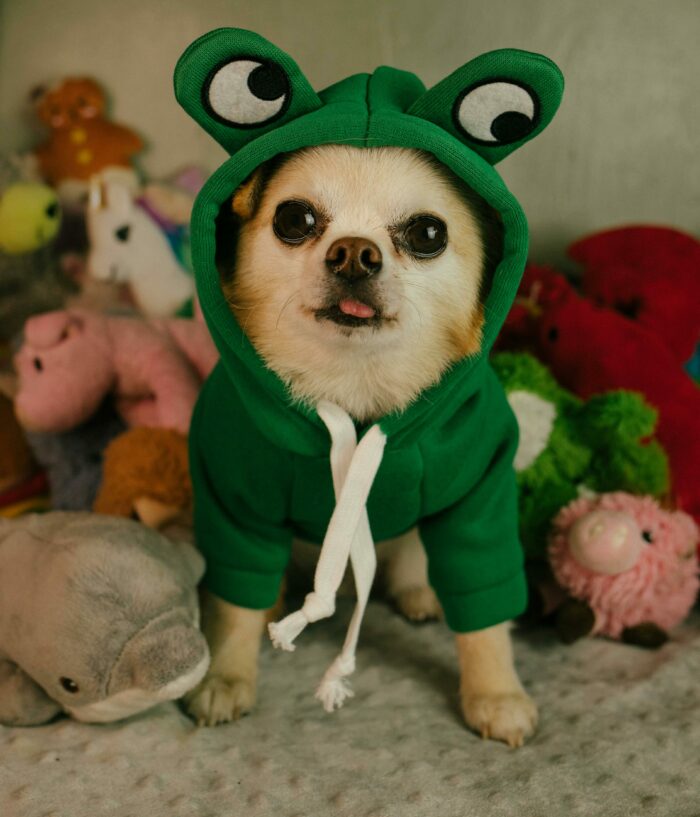
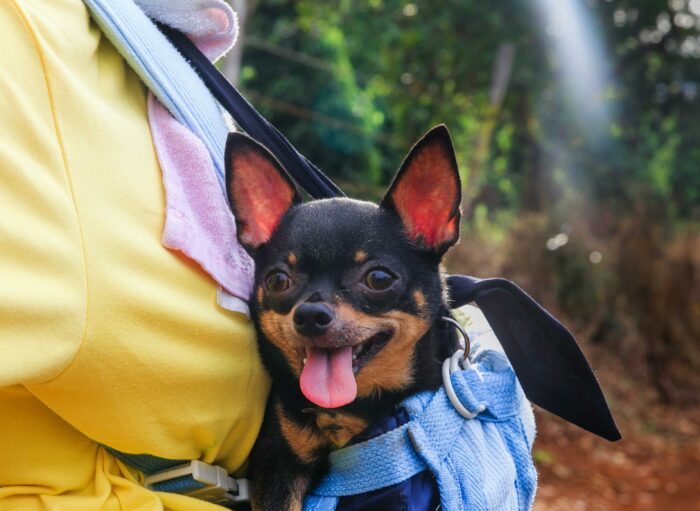













































2
1